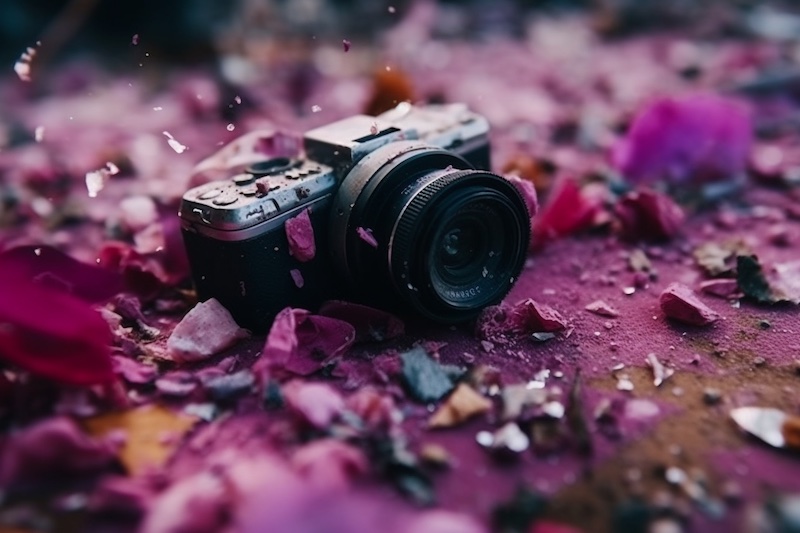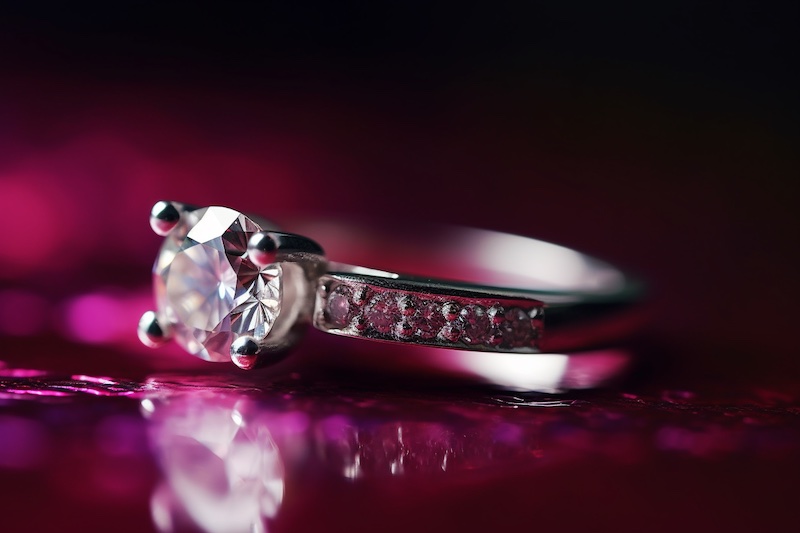- What does scheduling personal property mean?
- So, what’s Extra Coverage? Is it another word for the same thing?
- Which items are eligible for scheduled personal property coverage?
- Doesn't my regular home insurance policy cover my valuables against a lot of things?
- The benefits of scheduling valuables
- Scheduling jewelry
- What about valuables that aren't jewelry, art, bikes, cameras, or instruments?
- Which items aren’t eligible under Extra Coverage?
- Scheduled personal property coverage and professional use
- How do I schedule personal property?
You’ve got stuff you enjoy, and then stuff that really matters. Maybe it’s an engagement ring, a top-of-the-line road bike, or that digital camera you splurged on back in 2020.
We know how important these things are to you, which is why your renters policy offers special, additional coverage for them.
Adding these items individually to your policy is known as “scheduling personal property.” At Lemonade, we call it adding Extra Coverage (it just rolls off the tongue a bit more easily).
- Scheduling personal property simply means adding individual, high-value items to your policy, to give them additional protections.
- At Lemonade, this is called “Extra Coverage,” and it can be applied to jewelry, bikes, cameras, fine art, and musical instruments.
- The perks of scheduled personal property coverage at Lemonade include coverage against “mysterious loss” and accidental damage—things that aren’t covered by our basic renters or homeowners policy.
- Claims for items that are “scheduled” also have a $0 deductible.
What does scheduling personal property mean?
Let’s cut through the jargon. This is a complex term for something pretty simple: having your insurance company add a high-value item to your policy so that it can enjoy additional protections.
So if you’d like to “schedule” your jewelry, that means you’d like to defend it against a wider array of bad stuff that could happen to it. This way, it can be replaced or repaired at full value in case of theft, fire, or physical damage (like if your ring gets scratched).
So, what’s Extra Coverage? Is it another word for the same thing?
Yup, Extra Coverage is just Lemonade’s term for “scheduled personal property.” Let’s face it: Some of your most prized possessions need a little extra TLC.
What are the perks of scheduling personal property? Well, scheduled items receive:
- Coverage against mysterious loss or disappearance (an item goes missing or is lost without any clear explanation, cause, or evidence of theft, damage, or negligence)
- Coverage against any accidental physical damage
- $0 deductible on claims for any scheduled property (if your item is worth $2,000, Lemonade will pay you the full replacement cost, with no out-of-pocket deductible to worry about)
Which items are eligible for scheduled personal property coverage?

Generally speaking, scheduled personal property coverage (aka Lemonade’s Extra Coverage) is offered for:
Doesn’t my regular home insurance policy cover my valuables against a lot of things?
Yes, your renters policy also covers your valuables against things like theft, or damage from covered perils (like an apartment fire).
But it’s important to remember that accidental loss and accidental physical damage are not covered under your base policy.
Accidental or “mysterious” loss
Let’s say your expensive ring falls off after your partner proposes in Time Square, and it rolls down a sewer drain. Your basic HO3 (homeowners) or HO4 (renters insurance) wouldn’t cover you, since it was accidental. That’s why scheduling personal property is such a good idea.
Theft sublimits under a base policy
And while your basic renters or homeowners insurance policy does offer protection for valuables like jewelry against perils like theft, there’s some fine print. Your base policy would only cover jewelry theft up to $1,500 (in insurance speak, we call that amount ‘the sublimit’).
In this scenario, scheduling personal property like your engagement ring would mean you’d be likely to be compensated for more of the ring’s full value, if it were stolen.
The benefits of scheduling valuables
A Lemonade base policy already covers your camera equipment, instruments, and bicycles against theft, vandalism, fire, and more, in and away from the home.
These belongings technically fall under your base policy’s Personal Property Coverage, so as long as you set your personal property coverage limits amount high enough (based on how valuable your stuff is) you may already be amply covered for these categories.
Okay, so… if a base policy already covers that expensive Nikon or fancy Bianchi, why would you bother adding scheduled personal property coverage?
Well, sorry to sound like a broken record here, but this additional coverage for your bike and camera would cover you against additional perils—including accidental damage and mysterious loss. You’ll also be able to make deductible-free claims.
Scheduling jewelry

Some of the most commonly scheduled personal property items are engagement rings and wedding bands. So let’s dig in a bit deeper here, since this might be what you’re interested in, too.
If you bought your fiancée an engagement ring, that jewelry is already covered under your base policy against theft, vandalism, fire, and other named perils, whether you’re in your home or on-the-go.
But note that with a base policy, theft is only covered up to the $1,500 sublimit.
Plenty of jewelry costs significantly more than $1,500. In order to cover the full value of your item, above and beyond $1,500—and receive coverage for accidental damage and accidental loss, as well as deductible-free claims on your jewelry—you’ll want to schedule your personal property.
Another thing to consider: If your partner is in possession of the jewelry item, e.g. they’re the one wearing the engagement ring, then they must be added to your insurance policy as an additional insured.
If he or she loses the engagement ring while in their possession, it’ll only be covered if their name is listed on your policy. Note that in order to add your partner to your policy, they must be living with you at the address listed on your policy.
What about valuables that aren’t jewelry, art, bikes, cameras, or instruments?
If you’re thinking ‘Wait, I have a few expensive items that don’t fit into any of those categories above…’ Don’t stress: These items—types of property like furniture, personal electronics, silverware, and clothing—are probably covered against common perils under your base insurance policy.
Now, your basic renters policy protects your electronics and appliances against certain “perils,” but not against every type of damage.
For instance, if your washing machine has an electrical failure, your policy wouldn’t help. But if you want to add on those extra protections, you can purchase Equipment Breakdown Coverage (EBC). This is an endorsement to complement and enhance your renters insurance and provide coverage for many other types of damage.
If you’d like to learn more about what your base insurance policy covers, check out our ultimate renters insurance or homeowners insurance coverage guides.
Which items aren’t eligible under Extra Coverage?
Sometimes, certain types of personal property don’t qualify for Extra Coverage. Here are a few examples of things you can’t add scheduled personal property coverage for:
- Phones
- Drones
- Sunglasses
- Certain types of pricey electronics
- Guitar amps can be scheduled, but only if the guitar they pair with is also scheduled
- Recording equipment, headphones, microphones, and speakers can’t be scheduled
- Only camera bodies and lenses can be scheduled—not tripods, camera bags, lighting equipment, or other gear
Scheduled personal property coverage and professional use
You can’t schedule personal property coverage for things that you use for your business, or that earn you even a modest amount of income.
So let’s say you do some professional photography as a side gig, photographing weddings. Or you have an expensive guitar because you play in a band that earns money playing concerts.
While your base policy can cover your camera or guitar up to a certain amount for ‘named perils,’ you can’t get Extra Coverage on either item in this instance.
If you need to cover your professional-use camera or musical instrument for accidental damage and mysterious disappearance, you’ll want to look into business insurance through another carrier.
How do I schedule personal property?
Adding Extra Coverage to your Lemonade policy is simple. Just follow these steps:
- When you’re getting your Lemonade policy, tap ‘Activate Extra Coverage.’ Or, if you already have a policy, head to Lemonade’s app and tap the Extra Coverage button under ‘Add-Ons.’
- Our chatbot Maya will send you an email. Open it, and click ‘Add Extra Coverage.’
- Go through the flow with our helpful assistant, during which you’ll be asked to send along:
– A picture of the item you’re adding coverage for
– A picture of its receipt, or an appraisal that was issued in the last 5 years
– A picture of your item placed on top of the receipt or appraisal (if you’re insuring jewelry) - Our Underwriting team will get back to you ASAP, and they’ll let you know the status of your request via email.
Getting temporary Extra Coverage when you sign up for a policy
Okay, so you’re signing up for a Lemonade Renters policy for the first time. You don’t need to have all that documentation ready in advance.
If you answer ‘Yes’ when Maya asks if you have any valuable items, you’ll be able to select the type of items, and provide a guesstimate of their total value.
After this, Lemonade will automatically grant you temporary Extra Coverage, which lasts for 14 days. This will give you a bit of time to gather the documentation mentioned above—like receipts, and pictures of your valuables.
Have more questions about Extra Coverage? Open up your Lemonade app, and ask Maya. Or, shoot an email over to [email protected], and our CX team will get back to you as soon as possible.
A few quick words, because we <3 our lawyers: This post is general in nature, and any statement in it doesn’t alter the terms, conditions, exclusions, or limitations of policies issued by Lemonade, which differ according to your state of residence. You’re encouraged to discuss your specific circumstances with your own professional advisors. The purpose of this post is merely to provide you with info and insights you can use to make such discussions more productive! Naturally, all comments by, or references to, third parties represent their own views, and Lemonade assumes no responsibility for them. Coverage may not be available in all states.




